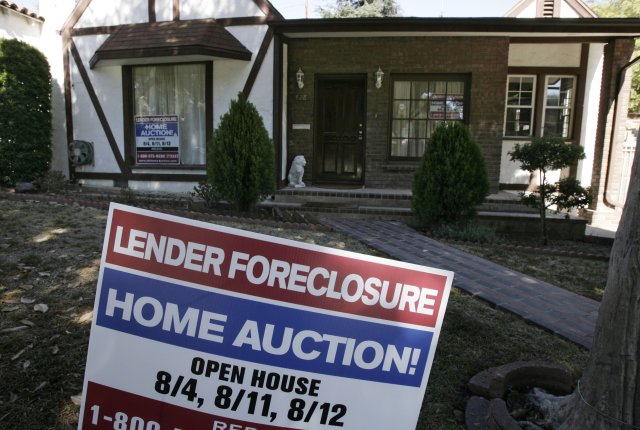
United States: The nonsense battle over debt
Dean Baker
Policy debates in Washington are moving ever further from reality as a small elite moves to strip benefits that the vast majority need and support. The battle over raising the debt ceiling is playing a central role in this effort.
The United States is running extraordinarily large budget deficits. The size of the annual deficit peaked at 10% of GDP in 2009, but it is still running at close to 9% of GDP this year.
The reason for the large deficits is almost entirely the downturn caused by the collapse of the housing bubble.
At the beginning of 2008, the Congressional Budget Office (CBO), the country’s most respected official forecasting agency, projected that the budget deficit in 2009 would be just 1.4% of GDP.
The reason the deficit exploded to 10% had nothing to do with wild new spending programs or excessive tax cuts. This enormous increase in the size of the deficit was entirely the result of the fallout from the housing bubble.

Remarkably, both Republicans in Congress and President Barack Obama have sought to conceal this simple reality.
The Republicans like to tell a story of out-of-control government spending. This is supposed to be a long-standing problem (in spite of the fact that Republicans have mostly controlled the government for the past two decades) that requires a big overhaul of the budget and the budgetary process.
They are now pushing, as they have in the past, for a constitutional amendment requiring a balanced budget.
It might be expected that Obama would be anxious to correct the misconception about the budget, but this would not fit his agenda either.
Obama is relying on substantial campaign contributions from the business community to finance his re-election campaign. Many business people are anxious to see the major government social programs (social security, Medicare and Medicaid) rolled back.
They see the crisis created around the raising of the debt ceiling as a unique opportunity to accomplish this goal.
To advance this agenda, Obama also has an interest in promoting the idea of the deficit as a chronic problem. Plus, it gives him an opportunity to blame the deficit on the fiscal choices of his predecessor, George W Bush.
Therefore, in his address to the country on July 25, Obama told the public that as a result of Bush’s tax cuts, his wars, and his Medicare prescription drug benefit, the deficit was on track to be more than US$1 trillion.
This is more than five times as large as the actual figure projected by CBO.
However, Obama’s distortion preserved the idea of the deficit as a chronic problem, while also getting in an attack on the Republicans. It also allows him to avoid talking about the housing bubble.
This is a topic that he seems anxious to avoid, since many large contributors to his re-election and to the Democratics profited enormously from the bubble.
The claim that the deficit is a chronic problem and not primarily the result of a severe cyclical downturn also opens the door for cuts to the country’s major social welfare programs.
These cuts are hugely unpopular. All three programs enjoy overwhelming support among people in all demographic groups, including conservative Republicans.
There is no way an ambitious politician would ever suggest big cuts to these programs apart from a crisis.
In this respect, the crisis over the debt ceiling is the answer to the prayers of many people in the business community. They desperately want to roll back the country’s welfare programs, but know there is almost no support for this.
The crisis over the debt ceiling gives them an opportunity to impose cutbacks in welfare by getting the leaders of both big political parties to sign on to the deal, leaving the opponents of cuts with no plausible political options.
To advance this agenda, they will do everything in their power to advance the perception of crisis. This includes having the bond-rating agencies threaten to downgrade US debt if there is not an agreement on big cuts to the welfare state.
In principle, the bond-rating agencies are only supposed to assess the likelihood that debt will be repaid.
However, they showed an extraordinary willingness to allow profit to affect their ratings when they gave investment grade ratings to hundreds of billions of dollars of mortgage-backed securities during the housing bubble.
Given their track record, there is every reason in the world to assume that the bond-rating agencies would use downgrades or the threat of downgrades for political purposes.
This means the battle over the debt ceiling is an elaborate charade that is threatening the country’s most important social welfare programs.
There is no real issue of the country’s creditworthiness or its ability to finance its debt and deficits any time in the foreseeable future.
Rather, this is about the business community in general, and the finance sector in particular, taking advantage of a crisis that they created to scale back the country’s social welfare system.
They may well succeed.
[Dean Baker is the co-director of the Center for Economic and Policy Research (CEPR). This article reprinted from www.cepr.net .]